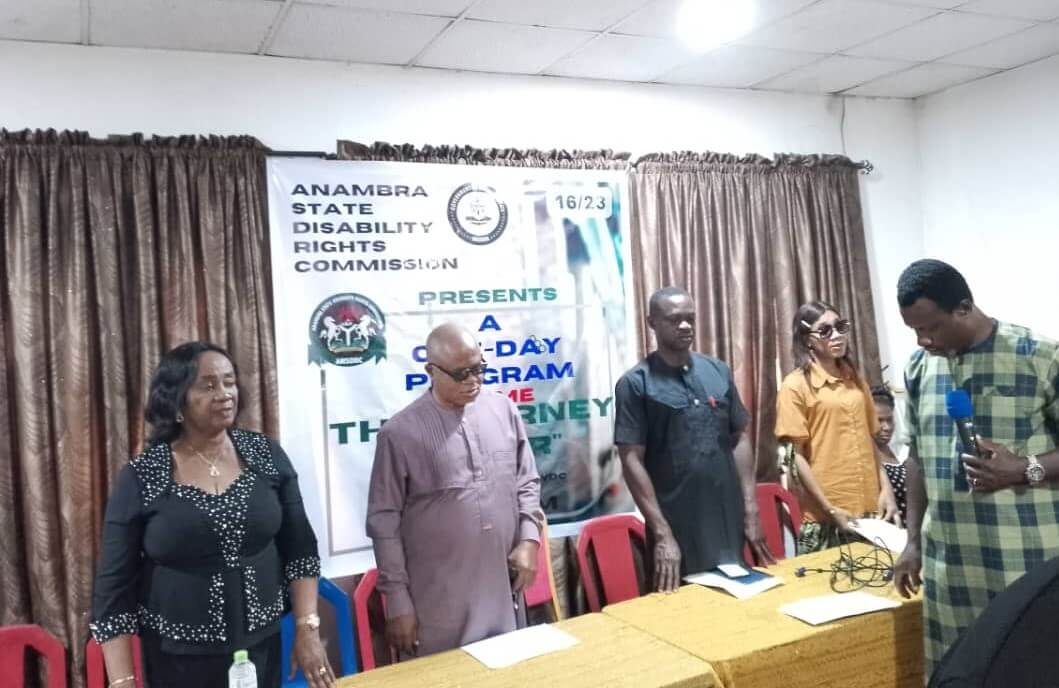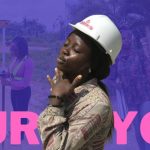Persons with disabilities or PWDs in Nigeria’s Anambra and Enugu states have condemned the perennial exclusion they have often suffered in the distribution of governmental interventions.
The people who spoke during separate events in the two states of the southeast region regretted that such an exclusion had been worsened by the stigma and discrimination they suffer in a society that has yet to understand disability and the issues connected to it.
Even though three of the five states of the region have enacted disability rights laws to protect PWDs from unwholesome treatments, the exclusion problem is not yet resolved. Imo and Ebonyi states are yet to have such a law in place.
Addressing PWDs recently during the celebration of the first anniversary of the Disability Rights Commission or DRC in Anambra State, a former Nigerian High Commissioner to South Africa, Uche Ajuluchukwu, lamented the fact that the administration of Governor Chukwuma Soludo has not budgeted a dime to the Commission since its inception in March 2022.
The Commission was inaugurated in 2022 at the twilight of Governor Willie Obiano’s administration, who had earlier in 2018 signed the disability rights bill into law, making the state the first in the country. The inauguration of the Commission, which is expected to drive the implementation of the 2018 legal document, was never backed up with monetary support as no budgetary provision was made to enable it to discharge its enormous responsibilities.
In her address on the occasion with the theme “The Journey So Far”, the former High Commissioner, Ajuluchukwu, a person with albinism, noted with displeasure the seeming abandonment of the Commission.
“I am urging the governor to give persons with disabilities a sense of inclusion. Let us have policy continuity. His predecessor instituted, recognised, ratified and domesticated the United Nations Disability Rights, the first state in the Federal Republic of Nigeria to do so,” she said.
“Our Commission was inaugurated at the dying minutes of Obiano’s administration because he saw how important it is to have a sense of inclusion. I want the Press to tell Charlie Nwa Mgbafor (as the governor is fondly called) that he has neglected the persons with disabilities. We don’t have a sense of inclusion in our dear state, which is not good because no one knows tomorrow.”.
She added: “Let him come back and start where Willie stopped. Why will they neglect us while we contribute our quota? No single naira has been given to the Commission for Persons with Disabilities from his government, and it is a duly established government agency. Why will the state assembly pass a budget that does not have any iota of funding for the Commission of PWDs? Don’t they have persons with disabilities in their families?”
She urged the governor to “come back and start where Willie stopped.”
Their counterparts in Enugu State have equally, in a release signed by Onyebuchi Mba, Chairman, Joint National Association of Persons with Disabilities or JONAPWD, after its executive meeting on August 19, 2023, expressed sadness with the exclusion of the disability community in fuel subsidy palliative committee recently constituted by Governor Peter Mbah.
The release appreciates the establishment of the committee and the allocation of funds to cushion the economic effects of recent fuel price increases.
“We acknowledge the efforts made by the government in recognizing the need to support vulnerable populations during challenging times. This goodwill should have been better appreciated if the government included the representative of persons with disabilities in his recently constituted palliative committee to demonstrate inclusiveness and the slogan ” nothing for us without us,” he said.
JONAPWD Enugu believes the wrong can still be corrected to give over 200 thousand PWDs a sense of belonging.
“We appeal to Enugu State Government to ensure the full inclusion and participation of persons with disabilities in distributing these palliatives. It is crucial to recognize that persons with disabilities are often the worst hit in any socio-economic crisis,” he said.
“Their vulnerability extends beyond the need for palliatives and requires deliberate planning and comprehensive measures to address their unique needs and challenges. We urge the Enugu State Government to collaborate with disability and civil society organizations to ensure PWDs are not left out of the fuel subsidy palliative distribution. Many struggle to have at least two meals daily, let alone meet other essential needs.”
While acknowledging the social and economic impacts of the recent fuel price increases, which have further exacerbated their plight, the statement calls for greater attention to the disability community from other non-governmental organizations.
“We call on policymakers, religious organizations, philanthropists, and other stakeholders to show compassion and empathy for the predicaments faced by persons with disabilities in present-day Nigeria. The voices and concerns of this marginalized group must be heard and appropriately addressed in policy decisions and resource distribution,” it said
“We believe that through inclusive decision-making and equitable distribution of resources, we can alleviate the sufferings of persons with disabilities, providing them with the opportunity for a better quality of life.”
Persons with disabilities (PWDs) in Nigeria's Anambra and Enugu states have criticized their exclusion from governmental interventions and the resulting stigma and discrimination they face. Despite some regional disability rights laws, implementation and funding remain inadequate. In Anambra, despite an established Disability Rights Commission (DRC), the government under Governor Chukwuma Soludo has not allocated funds for its operation. Former High Commissioner Uche Ajuluchukwu, during the DRC's first anniversary, urged the governor to continue the inclusive policies of his predecessor. In Enugu, the Joint National Association of Persons with Disabilities (JONAPWD) expressed disappointment over their exclusion from a recently formed fuel subsidy palliative committee. JONAPWD emphasized the need for inclusive decision-making and resource distribution to address the unique challenges faced by PWDs. They called on policymakers and various organizations to ensure PWDs are included in aid efforts and resource allocation to improve their quality of life.






